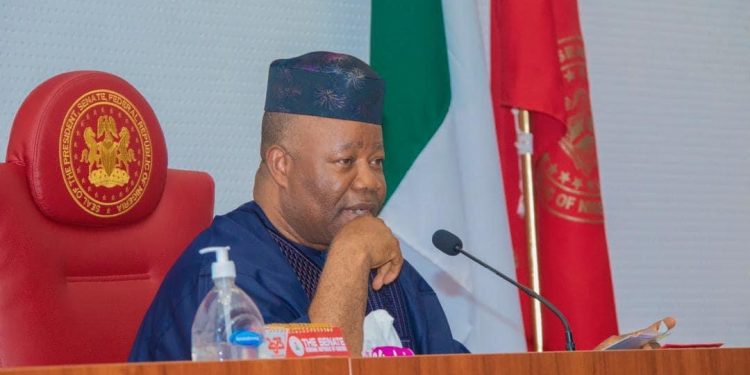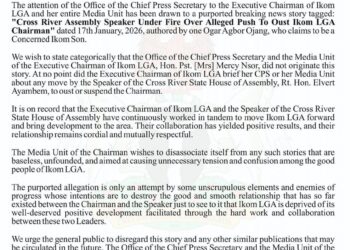The Senate has mandated its Committee on Solid Minerals Development to investigate the immediate and remote causes of dwindling revenue derivable from solid minerals development in the country.
Senate resolution followed consideration and adoption of a motion at plenary on Thursday. The motion titled, “Comprehensively Review the Input and Output Values of the Nigerian Mining Industry in Light of its Central Role to Economic Diversification, Foreign Exchange Earnings and Social Inclusion,” was sponsored by Senator Osita Ngwu (PDP- Enugu).
Mr Ngwu, in his lead debate, said after several decades of policy incoherence and weak institutional dis-alignment, the economic potential of the sector to the gross domestic product of the economy has remained dismal.
He said that quarrying dominates the total output of the mining sector, with almost 90 per cent contribution and an increasing growth rate that is largely driven by products such as granite, gravel, marble, and other construction materials in high demand within the housing sector.
He, however, said the requisite benefits to the government are not significantly evident by way of royalties.
He said the Nigeria Extractive Industries Transparency Initiative (NEITI) Solid Mineral Industry Report, 2020 indicates that the five-year trend of solid minerals’ contribution to GDP from 2016 to 2020 has fluctuated.
According to him, while Nigeria gets less from the sector, about 0.45 per cent in 2020, other African countries significantly contribute to their GDP.
“For example, the sector contributes over 40 per cent to the GDP of Botswana, and in Congo and South Africa, it is about 25 per cent and 18 per cent, respectively, ” the lawmaker said.
He said the Bureau of Public Enterprises (BPE) has been selling and is on the verge of concluding privatisation and commercialisation of all publicly funded facilities relating to the Nigerian mining and mineral sector even when the privatisation programmes have not shown any concise, beneficial impact to the mining industry.
He expressed concern that despite abundant mineral endowment in Nigeria and resources expended by the government, the contribution of the mineral sector to job creation, infrastructure development, and the GDP of the economy remains one of the lowest across the African sub-Saharan region.
Senator Victor Umeh (LP-Anambra) said people saddled with the responsibility of driving revenue for the country through the mining sector were doing so for their personal exploration and exploitation; hence, the sector was not contributing maximally to the nation’s GDP.
According to Mr Umeh, there is a need to investigate the sector, as not doing so would result in continuous revenue loss from the sector.
Senator Ahmad Lawan (APC Yobe) said the Senate should make solid minerals development a major legislative agenda, saying there was the need to advocate for interventions from the federal government to make the sector viable.
Senate President Godswill Akpabio said the sector had been neglected, saying that bandits’ activities of illegal foreigners were visible in the sector.
He said the nation’s precious minerals were being taken away daily without commensurate revenue or taxes, loyalty accruing to the Federal Government. “As far as solid minerals are concerned, there is no arrangement on what the government gets as revenue,” he said.
He said the motion was apt, adding that the Senate would not wait any longer to make recommendations to the government on the sector.
He urged the committee to conclude the investigations in three weeks.
The Senate, in its further resolutions, called for a review of the activities of the policy administrators, policy executors, and industry players in policy formulation and policy execution at downstream, midstream, and upstream operations of the sector.
It also urged the committee to ascertain the extent and impact of illegal mining activities and the extent of complicity of local and expatriate industry players.
The upper chamber called for a review of all the BPE privatisation or commercialisation programmes of all mining and mineral resources-related programmes from 1999 to date.
It also called for a stop to further privatisation of mining assets until the Senate concludes the investigation.
(NAN)
















